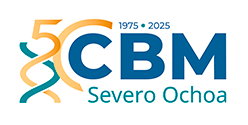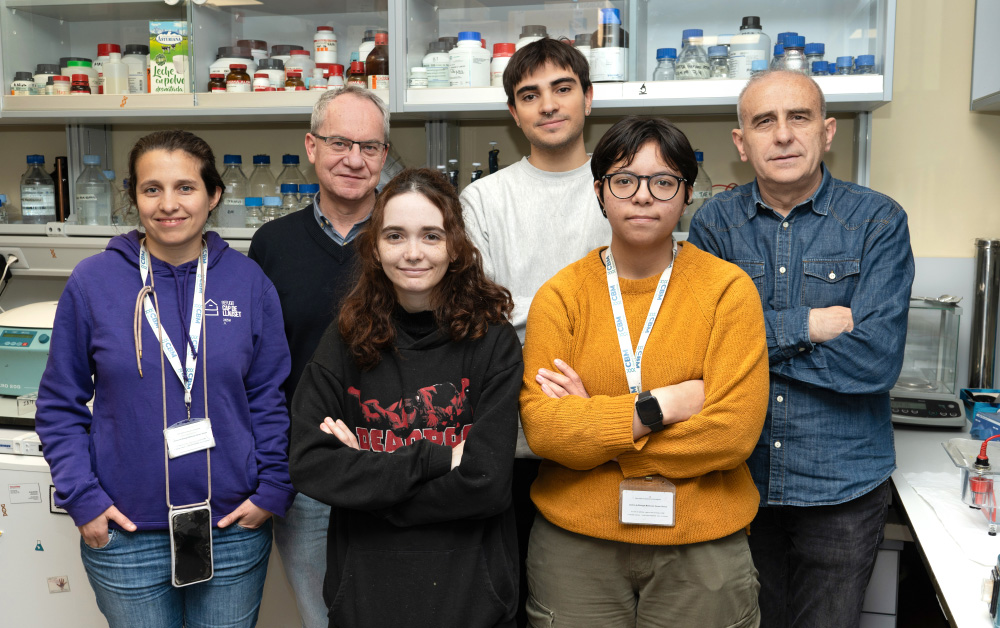Scientific Program
Interactions with the environment
RESEARCH GROUP
Nitric Oxide and bioactive lipids signalling in the immune response
Nitric oxide and bioactive lipids such as nitro-fatty acids or prostaglandins are key mediators in various pathophysiological situations, such as the immune response and inflammation. Our interest focuses on the study of the actions of these agents in the modulation of inflammation and the activation and differentiation of T lymphocytes, which will allow us to determine their therapeutic potential in diseases of autoimmune and allergic origin.

Research
Nitric oxide (NO) and bioactive lipids as nitro-fatty acids (NO2-FA) or prostaglandins (PGs), are key mediators in a variety of physiological and pathological processes, with an essential role in inflammation. Recent studies indicate that both mediators can play an important role in the modulation of the immune response. Our research lines are dedicated to the study the role played by NO, NO2FA and PGs in inflammation and in the activation and differentiation of T lymphocytes, analysing their involvement in the regulation of gene expression and activation of transcription factors triggered from the T cell receptor.
We are also interested in the analysis of other parameters of activation such as chemotaxis, intercellular adhesion and the organization of adhesion and signalling receptors at the immune synapse. The analysis of the actions exerted by these agents in the activation and function of human T lymphocytes will allow us to determine their role in the modulation of the immune response.
1. Nitric oxide and adaptive immunity
NO is a key messenger in the pathogenesis of inflammation. In the immune system, NO has been considered to be a cytotoxic molecule associated with the response of phagocytic cells to pathogens as part of the first line of host defence against infection. However, NO can also regulate the adaptive immune response, linking innate and adaptive immunity. By targeting signalling molecules, NO affects T helper cell differentiation and the effector functions of T lymphocytes, and is a potential target for therapeutic manipulation. In the last years, our group has been interested in the study of the regulatory actions exerted by NO in T cell functions, focusing on protein S-nitrosylation, nitration of fatty acids and nitro-alkylation of proteins by NO2-FA, as important post-translational modifications by which NO can act as a signalling molecule during T cell-mediated immunity.
2. Actions of bioactive lipids in inflammatory processes
Fatty acid oxidative modifications result in the production of bioactive lipids, which display a variety of actions in pathophysiological processes. These compounds include PGs and NO2-FA, important signalling molecules that can modulate the inflammatory process and the immune response. To this end, we analyse their influence on diverse parameters of T lymphocyte function, focusing on their effects on transcriptional activation and gene expression and their consequences on cell activation and differentiation. Their anti-inflammatory and immunomodulatory effects take place mainly through their ability to covalently modify transcriptional regulatory proteins and enzymes and to activate various nuclear and membrane receptors, finally modifying protein function and altering patterns of gene expression. Research on the molecular and cellular basis of the actions of electrophilic fatty acids in inflammation and in the immune response, will contribute to the understanding of the potential therapeutic benefits of these compounds.
Group members

Miguel Ángel Iñiguez Peña
Lab.: 127/114.5 Ext.: 4508/4549
mainiguez(at)cbm.csic.es

Juan Manuel Serrador Peiró
Lab.: 114.6 Ext.: 4547
jmserrador(at)cbm.csic.es

Ana Renshaw Calderón
Lab.: 127 Ext.: 4549
arenshaw(at)cbm.csic.es

Leticia Villadangos Reyes
Lab.: 127 Ext.: 4547
lvilladangos(at)cbm.csic.es

Alicia Rodríguez Cárdenas
Lab.: 127 Ext.: 4508/4549

Yaiza Gutierrez de la Torre
Lab.: 127 Ext.: 4549
Selected publications

Nitro-oleic acid regulates T cell activation through post-translational modification of calcineurin
Ángel Bago et al.

Regulation of Cyclooxygenase-2 Expression in Human T Cells by Glucocorticoid Receptor-Mediated Transrepression of Nuclear Factor of Activated T Cells
Cristina Cacheiro-Llaguno et al.

Nitric Oxide and Electrophilic Cyclopentenone Prostaglandins in Redox signaling, Regulation of Cytoskeleton Dynamics and Intercellular Communication
Ángel Bago et al.

eNOS S-nitrosylates β-actin on Cys374 and regulates PKC-θ at the immune synapse by impairing actin binding to profilin-1
Almudena García-Ortiz et al.





